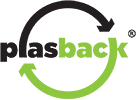New Zealand’s rural plastic recycling effort is entering a new phase: faster, more efficient, and potentially mandated.
With volumes of farm plastic waste doubling in just four years, industry leader Plasback has expanded its South Island operations, unveiling a high-capacity site and state-of-the-art baler near Christchurch. At the same time, the Government has opened consultation on proposed regulations that could see schemes like Plasback become part of a unified national system.
“It’s about future-proofing,” said Plasback commercial manager Neal Shaw. “We knew change was coming, more plastic, more demand, and we needed to be ready.”
It’s a shift that reflects both the changing attitudes of farmers and a push for environmental accountability. “From 2006 to 2021, we collected 20 million kilos of plastic. From 2021 to 2024, we’ve collected another 20 million kilos,” said Shaw. “So 50% of what we’ve ever collected has come in the last four years.”
To keep up with growing demand, Plasback leased a 9000sq m site near Yaldhurst, close to Midland Port, and installed a high-speed baler capable of processing up to 12 tonnes of plastic per hour – up from just 2.5 with older models. “Our old regional baling model was good for logistics, but the small balers were slow and expensive to run,” said Shaw. “We needed a faster, more efficient system to meet demand.”

The equipment came second-hand from a discontinued waste-to-energy baling operation, a well-timed opportunity that allowed Plasback to invest for a fraction of the cost. “It was 25% of the new price. We couldn’t have done it otherwise.”
Canterbury and Southland are among the country’s largest users of bale wrap and silage covers, making Christchurch the logical location for this pilot. The new hub is already drawing in more plastic from across the South Island and improving turnaround times for transport and processing.
Alongside the new baler, Plasback has added a hard plastics shredder, widening the scope of materials that can be processed and reused. “We’re now shredding Agri-chemical drums, mussel floats, even rejected water tanks,” said Shaw. “We’re constantly looking for ways to expand what we recycle.”
But faster equipment is only part of the solution. Contamination remains a challenge – one Shaw said all farmers can help solve. “There are three types of farmers: early adopters, those who’ll do it if it’s easy enough, and those who still prefer to light a match or bury it.”
“Burning plastic releases toxic smoke, and burying it creates legacy issues. Sometimes it resurfaces, and livestock eat it. That’s a disaster.”
Plasback’s recycling is more than waste removal, it’s a full-circle system. Once collected and processed, the plastics re-enter the market as practical products for the rural sector. “We sell plastic board called Tuff Board. It’s like plywood but made from recycled plastic,” said Shaw. “It’s used for calf pens, trailer decks, horse floats and vapour barriers for concrete floors.”
With around 9000 bins in use and growing, the scheme is becoming an everyday part of farm operations, particularly for those in the dairy sector, where Fonterra’s sustainability incentives have driven uptake.
“Fonterra’s Cooperative Difference programme played a huge role in the increase. It rewarded farmers for sustainable practices like recycling. We saw a major spike after that.”
Coinciding with Plasback’s infrastructure investment, the Government has proposed a national product stewardship scheme to consolidate existing farm plastic recycling programmes, including Plasback and Agrecovery.
“Plastic products are vital to New Zealand’s world-leading agri-economy, but rural communities know that waste like agrichemical containers and bale wrap can quickly pile up,” said Environment Minister Penny Simmonds in a Government statement on the public consultation process. “These regulations will provide a unified system where producers, sellers, and users take responsibility for the entire product lifecycle, from design to disposal.”
The proposed scheme aims to make recycling simpler and more accessible, with free drop-off sites, coordinated collections, and shared responsibility across the supply chain. Consultation is open until June 1, 2025.
“If a mandated scheme is introduced, the cost will be built into the supply chain,” said Shaw. “You’ll already have paid for recycling, so why wouldn’t you do it?”
Shaw is optimistic that with the right infrastructure, incentives, and education, recycling will become standard on every New Zealand farm. “Clean plastic is a commodity. Dirty plastic is a cost.”
With a nod to the future, he added: “If you’re selling yourself as a custodian of the land, then you have an obligation to protect it and leave it in good condition for the next generation.”
To learn more about Plasback’s collection service, find your local collector, or get tips on reducing contamination, visit plasback.co.nz.
